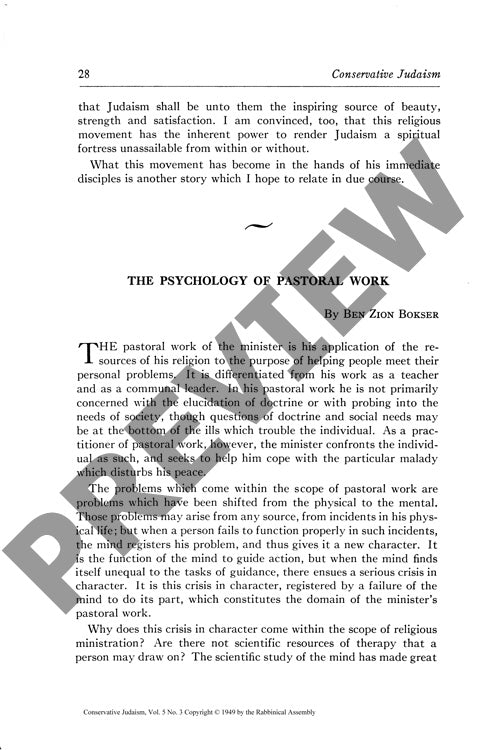The Psychology of Pastoral Work
Couldn't load pickup availability
When individuals face profound life crises that overwhelm their mental and emotional resources, religious pastoral care offers a distinct therapeutic pathway that extends beyond conventional psychiatric treatment. Through comparative analysis of religious ministry and psychiatric interventions, this research reveals how pastoral work uniquely addresses character crises by deploying mature theological frameworks—particularly those dealing with evil, suffering, and divine providence. While psychology and psychiatry contribute valuable insights into mental behavior and character breakdown, their therapeutic limitations often leave patients at an impasse. Judaism's monistic theology, especially within Hasidic traditions, demonstrates remarkable efficacy in mental healing by providing comprehensive frameworks for understanding human suffering. The investigation identifies recurring sources of mental tension, including illness, bereavement, family discord, personal handicaps, social reverses, guilt, historical tragedy, and cosmic despair. Operating through multiple channels—preaching, discussion groups, and individual conferences—pastoral work achieves its most distinctive and effective therapeutic intervention through one-on-one ministerial guidance. This systematic examination distinguishes pastoral care from both teaching and communal leadership roles, establishing it as a unique domain with its own methodology and theoretical foundation.

More Information
-
Physical Description
-
Publication Information
Published 1949
ISBN
-
Publication Credits
Ben Bokser

